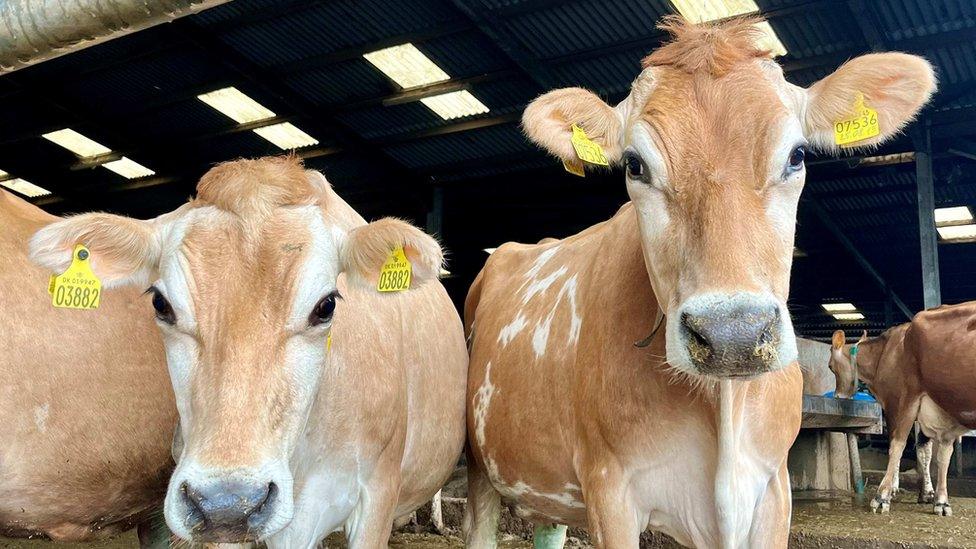Wet weather sees farming morale at 'all time low'
- Published
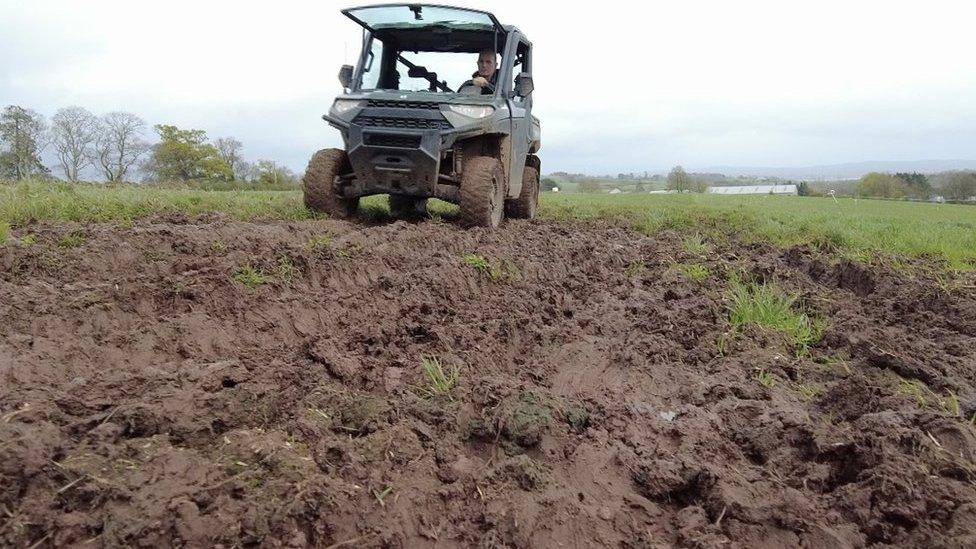
David Braine, BBC South West senior meteorologist, said the region had seen twice the normal amount of rain in March
Prolonged wet weather has impacted farming across the south-west of England, with farmers saying "they have never known anything like this".
Arable farmers have been unable to plant spring crops and livestock farmers said they were short of feed.
David Braine, BBC senior meteorologist, said the region had seen twice the normal amount of rain in March.
Devon dairy farmer Robert Taverner said morale within the industry was at an "all time low".
He said his cows, which are usually out to pasture "day and night", had only been going out for three or four hours a day.
As a result, Mr Taverner, from Kennford, said extra winter food was required which could add "an extra 1p" on each litre of milk he produced.
He said: "The winter's been incredibly wet this year and it's been month after month of really wet weather.
"Talking to other farmers they've never known a period like this and it's made the ground incredibly wet at capacity and it's meant that we haven't been able to graze our cows as we normally would."
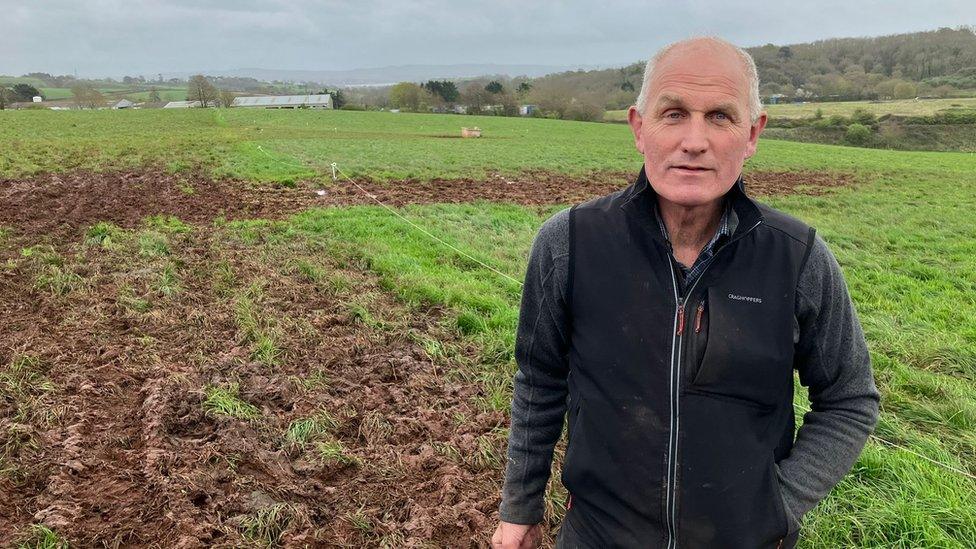
Devon dairy farmer Robert Taverner said morale within the industry was at an "all time low"
Carina Perkins, a senior analyst in retail and e-commerce in food supply chains, said supermarkets were "going to do everything they can" to keep prices down, but "continued problems" with the weather could result in price increases.
Speaking to BBC Radio Cornwall she said: "We could see more imports, we could also see lower quality produce on the shelf.
"Supermarkets have already relaxed their specifications on vegetables so they could be slightly smaller and misshapen.
"It's been relentless."
'Lambs are suffering'
Mr Taverner said: "I think it's good that people are starting to realise that food is important and food security is important, but morale of farmers is really at an all time low and this weather caps it all.
"I know neighbours that have got arable, their corn didn't go in, their wheat and barley didn't go in at the right time or in good conditions in the autumn, they haven't been able to fertilise it properly in the spring and the crops are looking really poor.
"Lambing is happening now and that has been happening in really bad conditions. So the sheep are suffering and the lambs are suffering."
Farmer Steve Penberthy, from Porthleven, in Cornwall, said the amount of lambs he had lost had doubled this year.
He said: "We'd expect to lose about 10-15% as a normal figure during lambing.
"I think our losses this year, rough calculation, I don't really like to think about it too much, I think we're up to about 30% this year and that's mainly probably the weather."
Mr Penberthy said it was "very difficult to bring lambs back" once they had succumbed to hypothermia from being "constantly cold, wet and covered in mud".
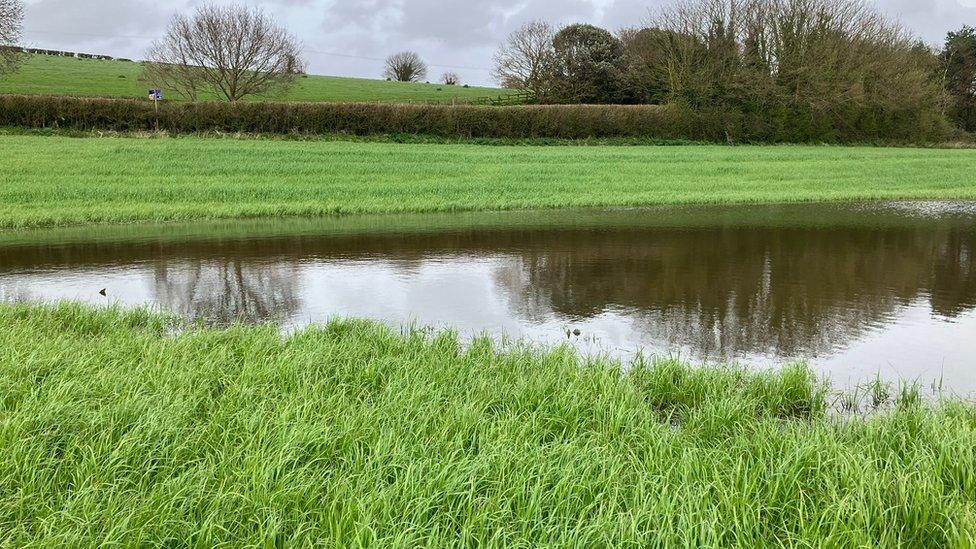
Farmers said heavy rain had caused waterlogged fields
In Cullompton, in Devon, arable farmer Richard Clarke said trying to harvest crops was "a nightmare".
He said: "We should have a third of our crop planted for this coming season and it's just too wet.
"We're going to be in the middle of April in a minute and we've got a lot of planting to do for our spring crops.
"We haven't got our early crops in and we start lifting again in the beginning of July, we haven't even planted those crops yet, they should have been in in January."
However, James Grigg, a farmer from Bideford who expected to lose 15% of his yield due to the weather, said the situation would "come right" in the end.
"It's not very nice being out there, the likes of us, we are generally at a stop.
"When the weather is like this you can't do nothing about it. You just have to grin and bear it, it will come right."

Follow BBC Cornwall on X (formerly Twitter), external, Facebook, external and Instagram, external. Follow BBC Devon on X (formerly Twitter), external, Facebook, external and Instagram, external. Send your story ideas to spotlight@bbc.co.uk, external.
Related topics
- Published30 March 2024
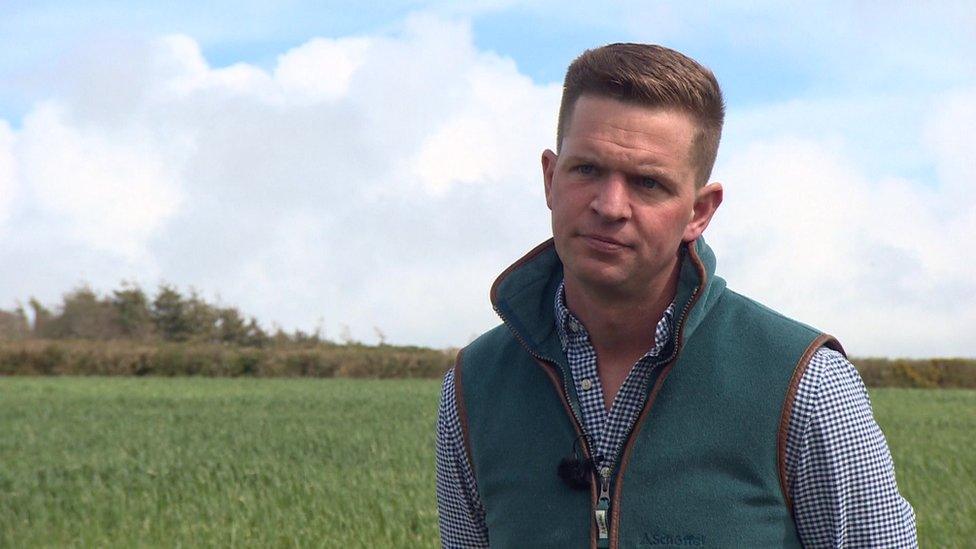
- Published2 March 2024
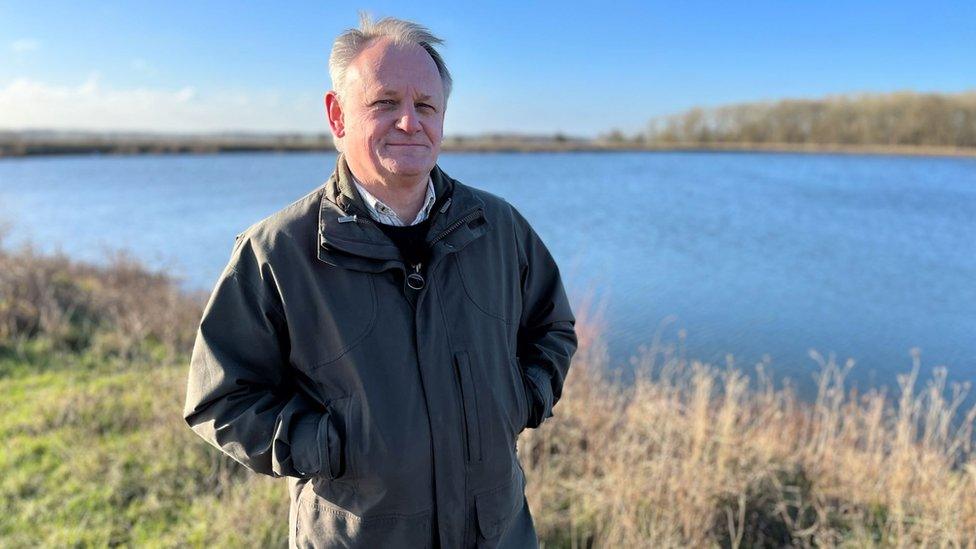
- Published25 February 2024
